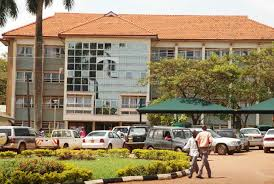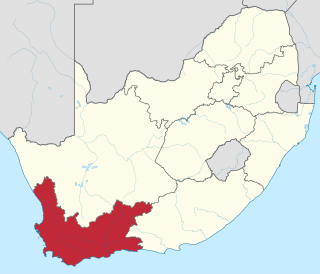
The Chinese University of Hong Kong (CUHK) is a public research university in Shatin, Hong Kong formally established in 1963 by a charter granted by the Legislative Council of Hong Kong. It is the territory's second oldest university and was founded as a federation of three existing colleges – Chung Chi College, New Asia College and United College – the oldest of which was founded in 1949.

The University of New Zealand was New Zealand's sole degree-granting university from 1874 to 1961. It had a federal structure embracing several constituent institutions at various locations around New Zealand. After it was dissolved in 1961 New Zealand had four independent degree-granting universities and two associated agricultural colleges: the University of Otago (Dunedin), University of Canterbury (Christchurch), University of Auckland (Auckland), Victoria University of Wellington (Wellington), Canterbury Agricultural College (Lincoln) and Massey Agricultural College.

The University of Reading is a public university located in Reading, Berkshire, England. It was founded in 1892 as University College, Reading, a University of Oxford extension college. The institution received the power to grant its own degrees in 1926 by Royal Charter from King George V and was the only university to receive such a charter between the two world wars. The university is usually categorised as a red brick university, reflecting its original foundation in the 19th century.

The University of Notre Dame Australia is a national Roman Catholic private university with campuses in Fremantle and Broome in Western Australia and Sydney in New South Wales. The university also has eight clinical schools as part of its school of medicine located across Sydney and Melbourne and also in regional New South Wales and Victoria.
Sir Colin Renshaw Lucas, is a British historian and university administrator. From 1997 to 2004, he was the Vice-Chancellor of Oxford University. In May 2006, he was appointed Chair of the Board of the British Library for a four-year term ending 2010.

Central Queensland University is an Australian dual sector university based in central Queensland. CQUniversity is the only Australian university with a campus presence in every mainland state. Its main campus is in Norman Gardens in Rockhampton, however, it also has campuses in Adelaide (Wayville), Brisbane, Bundaberg (Branyan), Cairns, Emerald, Gladstone, Mackay, Melbourne, Noosa, Perth, Rockhampton City, Sydney and Townsville. CQUniversity also has delivery sites to support distance education in Biloela, Broome, Busselton, Charters Towers, Karratha and Yeppoon, and partners with university centres in Cooma, Geraldton and Port Pirie.
Academic administration is a branch of university or college employees responsible for the maintenance and supervision of the institution and separate from the faculty or academics, although some personnel may have joint responsibilities. Some type of separate administrative structure exists at almost all academic institutions. Fewer institutions are governed by employees who are also involved in academic or scholarly work. Many senior administrators are academics who have advanced degrees and no longer teach or conduct research.
The Caribbean Examinations Council (CXC) is an examination board in the Caribbean. It was established in 1972 under agreement by the participating governments in the CARICOM to conduct such examinations as it may think appropriate and award certificates and diplomas on the results of any such examinations so conducted. The Council is empowered to regulate the conduct of any such examinations and prescribe the qualification requirements of candidates and the fees payable by them. It is now an examining body that provides educational certifications in 16 English speaking Commonwealth Caribbean Countries and Territories and has replaced the General Certificate of Education (GCE) examinations used by England and some other members of the Commonwealth. The CXC is an institution of the Caribbean Community (CARICOM); it was recognised as an Associate Institution of the Community in the 1973 treaty that created the Caribbean Community. Members of the Council are drawn from the 16 territories and the region's two universities, the University of Guyana and the University of the West Indies.

The University of Cape Coast is a public collegiate research university located in Cape Coast, Ghana. The university was established in 1962 out of a dire need for highly qualified and skilled manpower in education. It was established to train graduate teachers for second cycle institutions such as teacher training colleges and technical institutions, a mission that the two existing public universities at the time were unequipped to fulfill. The university has since added to its functions the training of doctors and health care professionals, as well as education planners, administrators, and agriculturalists. UCC graduates include Ministers of State, High Commissioners, CEOs, and Members of Parliament.
Mangosuthu University of Technology (MUT) is a University of Technology situated on the outskirts of Durban, South Africa, on a site overlooking the Indian Ocean. MUT is located in the academic hub in the eThekwini metropole, a dynamic growing economy, focused for future growth. It is a residential university, largely serving previously disadvantaged communities with a strategic intent to educate and empower students and communities, and address pressing transformation and multicultural issues facing South Africa.

The Worldwide Universities Network (WUN) is an alliance of 23 research-intensive universities. WUN provides financial and infrastructural support to member universities to foster international research collaboration and facilitate academic mobility.

Universities South Africa is an association of the 23 public universities in South Africa. Its function is to form a unified voice for the interests of its members, to form common policy for its members on matters of national importance, and to provide various services to its members.
Governance in higher education is the means by which institutions for higher education are formally organized and managed. Simply, university governance is the way in which universities are operated. Governing structures for higher education are highly differentiated throughout the world, but the different models nonetheless share a common heritage. Internationally, tertiary education includes private not-for-profit, private for-profit, and public institutions governed by differentiated structures of management.

Kyambogo University (KYU) is a public university in Uganda. It is one of the eight public universities and degree-awarding institutions in the country.

Namibia University of Science and Technology (NUST), formerly known as Polytechnic of Namibia, is an institute of tertiary education in the city of Windhoek, Namibia. It was until March 2019 headed by the founding Vice chancellor Tjama Tjivikua. The largely ceremonial role of chancellor of the university is held by Prof. Peter Katjavivi.
Dayantha Sepala Wijeyesekera is a Sri Lankan academic and civil engineer. He was the first vice chancellor of Open University of Sri Lanka in 1983. He later served as Chairman, Tertiary and Vocational Education Commission (TVEC) in the Ministry of Youth Affairs and Skills Development of Sri Lanka. He was also the vice chancellor of University of Moratuwa from 1999 to 2005.
The Rhodes University Library is committed to the pursuit of knowledge by connecting people to resources that contribute to the intellectual development of future responsible citizens. The overarching goal of Rhodes University Libraries is to develop and maintain efficient, reliable and responsive library and scholarly communication services that promote, support and enhance the research, teaching and learning endeavours of Rhodes University.
The South African South East Academic Libraries System, commonly known as SEALS, was conceptualized in 1998 as a regional library cooperative, and fully constituted in 1999 as a regional consortium, under the auspices of the Eastern Cape Higher Education Association (ECHEA) in South Africa.















